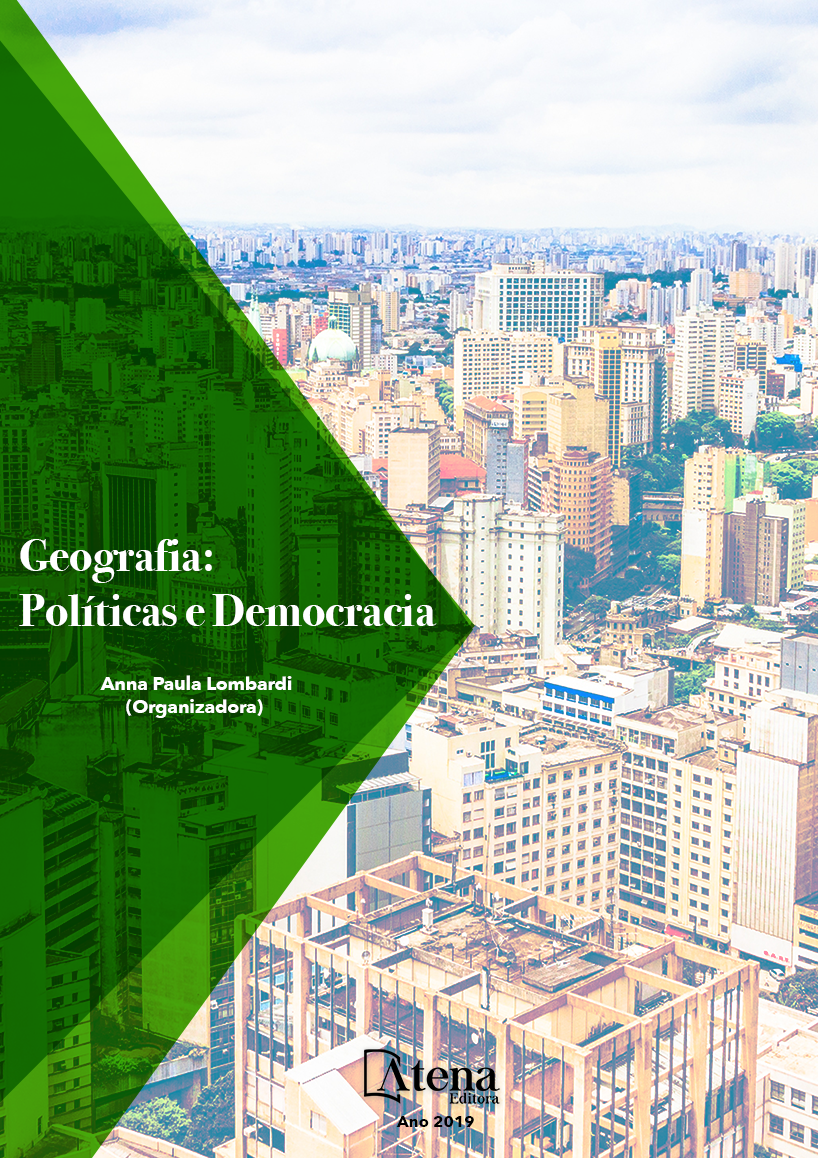
A EXPANSÃO DO ESPAÇO URBANO EM TERESINA - PI E AS SUAS CONSEQUÊNCIAS
O objetivo deste trabalho é analisar
a expansão do espaço urbano em Teresina-PI e
as suas consequências. O trabalho foi realizado
com base em pesquisa bibliográfica, e de campo.
No campo, foi possível analisar a situação de
vários complexos habitacionais construídos
longe do centro da cidade, alguns a vários
quilômetros da própria periferia da cidade, na
intenção clara de expandir o espaço urbano, a
partir da conversão do espaço rural. A expansão
urbana favorece quatro dos agentes produtores
do espaço – o Estado, os proprietários dos meios
de produção, os proprietários fundiários e os
promotores imobiliários; e prejudica a classe dos
grupos sociais excluídos, os quais completam
o grupo dos agentes produtores do espaço.
Estes últimos, por sua vez são explorados
através da sua mão-de-obra mal paga, durante
as a construção dos empreendimentos. São
igualmente alienados pela necessidade de
casa própria para segurança das famílias,
sujeitando-se a residir longe do centro da
cidade, onde estão a maioria dos empregos e
dos serviços. Terão que dispender quantidade
maior de tempo e porcentagem maior de suas
rendas em seus deslocamentos, tornados
mais problemáticos graças ao precário sistema
de transporte público. Esta é uma situação
que leva ao agravamento da pobreza. A
mão protetora do Estado só protege os mais
fortes, a classe capitalista sua parceira nos
grandes investimentos, nas grandes obras de
infraestruturas, através das quais acontecem
os desvios obscuros de verbas que por sua
vez levam à sobre-elevação das contas desses
empreendimentos.
A EXPANSÃO DO ESPAÇO URBANO EM TERESINA - PI E AS SUAS CONSEQUÊNCIAS
-
DOI: 10.22533/at.ed.4591919022
-
Palavras-chave: Estado. Espaço Urbano. Expansão urbana.
-
Keywords: State. Urban Space. Urban sprawl.
-
Abstract:
The purpose of this work is to
analyze the expansion of the urban space in
Teresina-PI and its consequences. The work
was based on bibliographical and field research.
In the field research, it was possible to analyze
the situation of several housing complexes
built far from the city center, some to several
kilometers of the own periphery of the city, in the
clear intention to expand the urban space, from
the conversion of the rural space. Urban sprawl
favors four space-producing agents - the state,
owners of the means of production, landowners
and real estate developers; and harms the class
of the excluded social groups, which complete
the group of the producing agents of the space.
The latter, in turn, are exploited through their
poorly paid labor during the construction of the
housing development. They are also alienated by the need for a home for the safety of
families, subject to residing far from the city center, where most jobs and services are
located. They will have to dispense a greater amount of time and a greater percentage
of their incomes in their journeys, made more problematic thanks to the precarious
system of public transportation. This is a situation that leads to the worsening of poverty.
The protective hand of the state protects only the strongest, the capitalist class, who is
its partner in the great investments, in the great works of infrastructure, through which
dubious diversions of the funds take place, which in turn lead to the super-elevation of
accounts of these constructions.
-
Número de páginas: 15
- Vital António Vilelas Faria
- VITAL ANTÓNIO VILELAS FARIA


